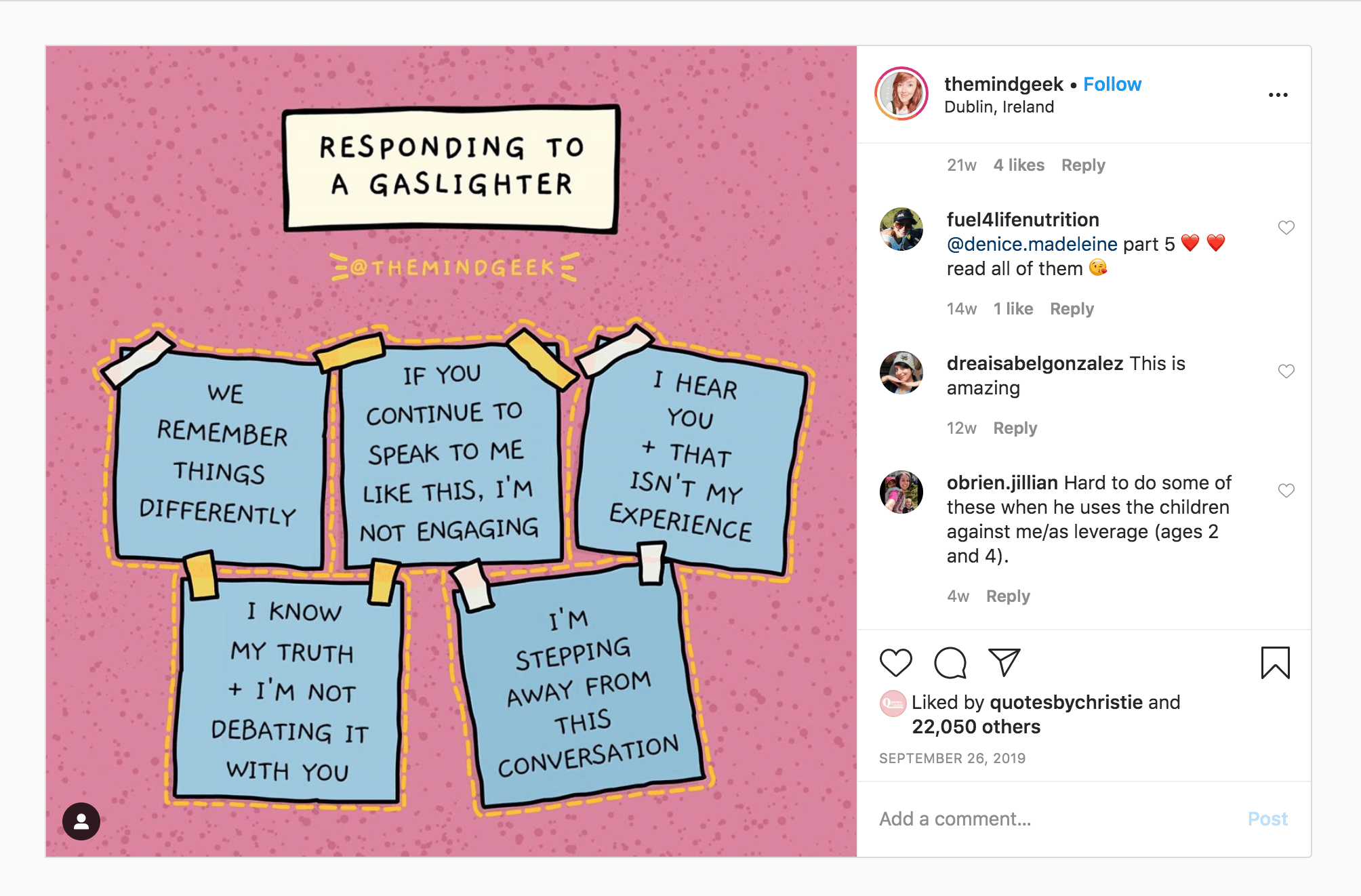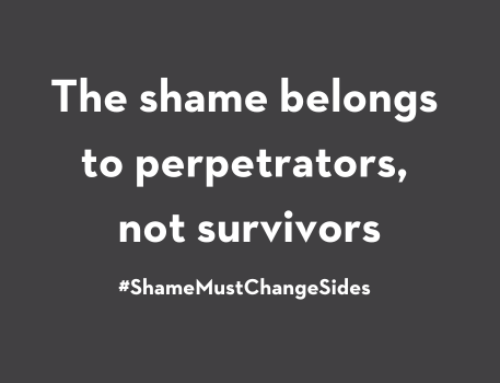There are many indications that gender-based violence has risen since the pandemic began, and it’s not just physical abuse. Something like gaslighting may not leave visible bruises but it can be a common form of emotional abuse to be aware of, particularly as pandemic isolation measures continue.
Gaslighting can be difficult to recognize at first, but it generally refers to a pattern of manipulation where the “gaslighter” attempts to make the person they are victimizing doubt themselves, and their grasp on reality. While it’s common for people to disagree over different perceptions of an issue or an event, gaslighters repeatedly make the person they are abusing feel at fault – blaming them for being “too sensitive” or “irrational.”
Gaslighting can happen between intimate partners, parents and children, and even co-workers. We see it play out in politics and on social media too. And when it comes to traumatic experiences like sexual assault and harassment, we may even be encouraged and socialized to gaslight ourselves, writes Kat Chow on NPR, saying it’s common for women to doubt ourselves and discount that these experiences actually happened.
The term for this behaviour comes from a 1938 play called Gas Light that was later adapted into a film. In the story, a husband causes his wife to question her sanity by secretly dimming and brightening gas lights in the house, as well as leading her to believe she steals objects and hears things that aren’t there.
But gaslighting isn’t always so overt. It may be part of everyday conversations: the gaslighter promises something, then doesn’t follow through, and says the person they gaslit must have imagined what was said. Over time, it can be used to undermine and weaken someone, leaving them vulnerable and easier to control. This pattern can take an immense toll on a person’s confidence, sense of self, and competence.

It is never the responsibility of a victim/survivor to “fix” abusive situations and we should never blame someone for being abused. But there are some options for someone to respond when they are being gaslit. In an Instagram post, Dublin-based psychotherapist Sarah Jane Crosby suggests phrases for responding to gaslighters, including “We remember things differently” and “I know my truth and I’m not debating it with you.”
Other recommendations for handling gaslighting, particularly if it happens at work, are to document the incidents so you’re not relying only on memory. You can also share the situation with a trusted person to get their perspective or seek professional support for rebuilding confidence and dealing with the relationship.
Gaslighting isn’t a reflection of the person being gaslit – it’s about the abuser and their need for power and control.
The Canadian Women’s Foundation is raising awareness about Signal for Help, a simple one-handed sign someone can use on a video call. It can help a person silently show they need help and want someone to check in with them in a safe way.
Learn more:







